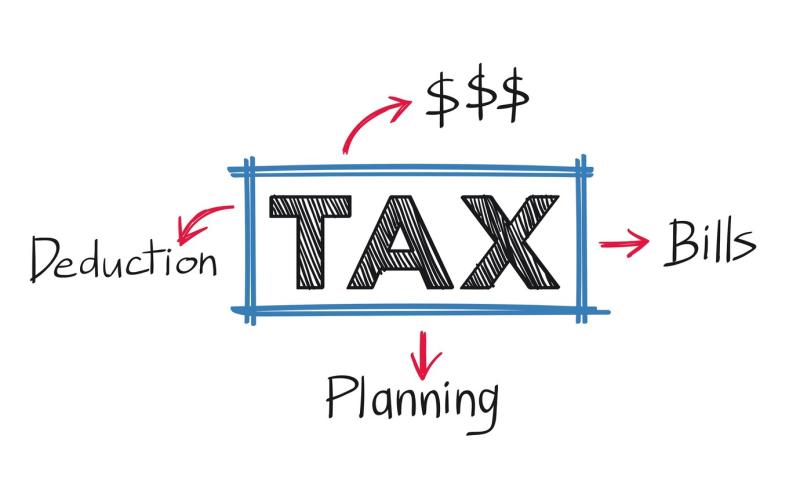Starting a Limited Company for Content Creators: What Nobody Tells You!

So your channel’s taking off, brand deals are coming in, and suddenly you’ve got invoices to send and money to manage.
Whether you're a YouTuber, TikToker, streamer, or freelancer, the idea of setting up a limited company can feel like a huge step.
But don't panic - nobody hands you a guide when you hit your first 10k subs or land your first paid sponsorship.
That’s why we’ve pulled together these Top 10 real-world tips for content creators starting their first company.
Chapters
- 1. You Don't Need a Fancy Accountant to Set It Up
- 2. HMRC Will Send You a UTR Number (Don’t Lose It!)
- 3. When You Start Earning, You're No Longer 'Dormant'
- 4. Open a Business Bank Account – Seriously!
- 5. File Your Confirmation Statement - Every Year!
- 6. Register for Corporation Tax Within 3 Months
- 7. Know What Being a Director Actually Means
- 8. Use Cloud Accounting Software (Don't Wait)
- 9. Should You Register for VAT? Maybe.
- 10. Save for Tax From Day One
- Final Thoughts
1. You Don't Need a Fancy Accountant to Set It Up
You might think you need an expensive accountant to start your company. Nope!
You can set it up yourself online using a legit company formation website.
It takes about 10 minutes and costs less than a night out.
Save the accountant for tax returns or advice later on - not for the basic setup.
2. HMRC Will Send You a UTR Number (Don’t Lose It!)
After you set up your company, HMRC will post you a Unique Taxpayer Reference (UTR).
It’s basically your company’s ID number for anything tax-related.
Keep this safe - you’ll need it when it’s time to file your company’s tax return.
3. When You Start Earning, You're No Longer 'Dormant'
At first, your company is considered "dormant" (not doing anything). The minute you:
- Get paid for a promo
- Sign a deal
- Buy equipment for your brand
…your company becomes active (aka “trading”). This means:
- You’ll need to file annual accounts (due 9 months after your company year ends)
- You can change your company’s year-end date if it helps with timing
Keep receipts, invoices, and anything money-related from Day 1.
4. Open a Business Bank Account – Seriously!
Don’t mix your TikTok earnings with your personal bank account. Just don't.
Using your personal account for business:
- Makes tax a nightmare
- Looks unprofessional
- Can get messy with HMRC
Get a proper business bank account (most are free or super cheap to start). It keeps things clean and makes you look more legit to brands.
5. File Your Confirmation Statement - Every Year!
Even if you’re not making money every month, you still have to file a confirmation statement once a year with Companies House.
It just confirms your company info is up to date.
Forget to file it? You could:
- Get fined
- Have your company shut down
Set a calendar reminder or use a filing service to stay on top of it.
6. Register for Corporation Tax Within 3 Months
As soon as your company starts making money, you must register for Corporation Tax with HMRC.
You’ve got 3 months from your first bit of business activity.
Even if you only made £50 from a reel - this rule still applies!
7. Know What Being a Director Actually Means
You’re not just a content creator anymore - you’re officially a company director.
That comes with legal responsibilities. You need to:
- Keep your accounts and expenses organised
- File your annual tax returns
- Do what’s best for your company (not just you personally)
It’s not scary - just be responsible and stay on top of things.
8. Use Cloud Accounting Software (Don't Wait)
Don’t leave your finances sitting in a Google Doc. Use proper accounting tools like:
- Xero
- QuickBooks
- FreeAgent
They’ll help you:
- Track income and expenses automatically
- Connect your business bank account
- Get ready for tax season with less stress
Bonus: Some banks offer these tools for free when you sign up with them!
9. Should You Register for VAT? Maybe.
VAT (Value Added Tax) kicks in only when you earn over £90,000 in a 12-month period.
But sometimes, it’s smart to register before that.
- If you work with big brands or agencies who are VAT-registered
- If you spend loads on camera gear or editing software and want to reclaim the VAT
But if you’re still small-scale, it might just create more paperwork.
Chat to an advisor first.
10. Save for Tax From Day One
This is the biggie. That £3,000 deal you just got? You don’t get to keep all of it.
Your limited company will owe:
- Corporation Tax (19–25% of profits)
- Possibly PAYE or dividend tax, depending how you pay yourself
Rule of thumb: Set aside 25% of everything you earn in a separate account.
That way, tax time won’t hit like a jump scare.
Final Thoughts
You don’t need to be a finance expert to run a company as a content creator.
But you do need to be smart.
Start with clean systems, understand your responsibilities, and reach out to a professional when things get complicated.
This isn’t just a hobby anymore - it’s your brand, your business, and your future.
Disclaimer: Any advice in this publication is not intended or written by One and Only Accounts to be used by a client or entity for the purpose of (i) avoiding penalties that may be imposed on any taxpayer or (ii) promoting, marketing or recommending to another party matters herein.




